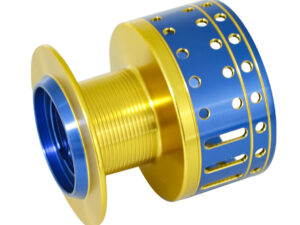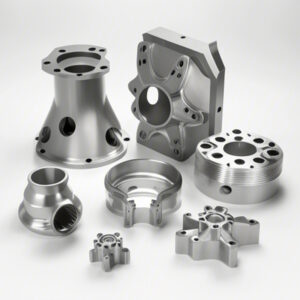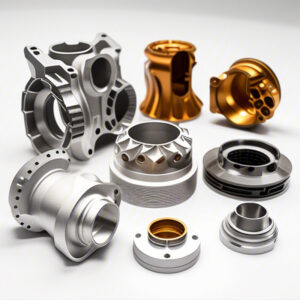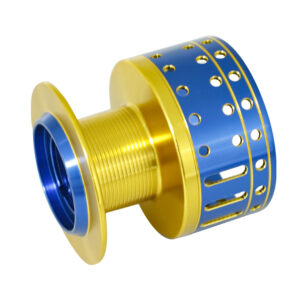Opening:
Did you know that the global market for CNC machining was valued at approximately $90 billion in 2022 and is projected to grow significantly over the next decade? As industries become increasingly reliant on precision manufacturing techniques, the demand for high-quality molds continues to rise. With CNC (Computer Numerical Control) custom machining at the forefront of this trend, it begs the question: Is CNC custom machining the best choice for manufacturing high-precision molds?
In this blog, we will explore the advantages and challenges of CNC custom machining, providing detailed insights and solutions for manufacturers looking to produce molds with extraordinary accuracy.
—
CNC custom machining is a process that involves using computerized controls to create highly accurate parts from a variety of materials, such as metal, plastic, and composites. This method works by removing material from a solid block—often referred to as a blank—through various cutting processes, including milling, turning, and grinding. One of the standout benefits of CNC machining is its ability to produce complex geometries and tight tolerances that are critical in mold-making.
The Importance of Precision in Mold Manufacturing
Molds play a crucial role in various manufacturing processes, particularly in injection molding, die casting, and blow molding. The accuracy and quality of molds significantly affect the final products’ functionality, aesthetic appeal, and longevity. Poorly manufactured molds can lead to significant production delays and increased costs, not to mention the potential for product defects.
Advantages of Using CNC Custom Machining for High-Precision Molds
One of the primary reasons manufacturers turn to CNC custom machining for mold production is its ability to achieve exceptional precision. CNC machines are capable of maintaining tolerances as tight as ±0.001 inches. This level of accuracy is essential in mold-making, where deviations can lead to costly errors.
Modern CNC machining can create intricate designs that traditional machining methods may struggle with. CAD (Computer-Aided Design) software allows engineers to create complex shapes that can be easily translated into machining instructions, enabling the production of highly detailed molds that meet specific requirements.
CNC custom machining is compatible with various materials, including aluminum, steel, and advanced polymers. Manufacturers can select optimum materials based on the end-use of the mold, ensuring that the molds can withstand production demands while meeting specific thermal, mechanical, and chemical properties.
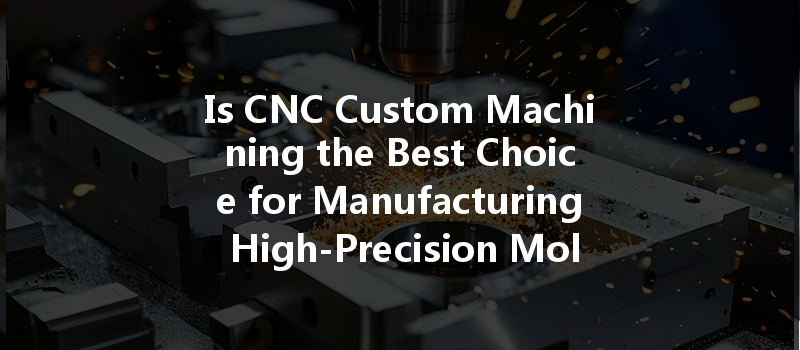
CNC machining can accommodate production runs of varying sizes, from prototyping to large-scale manufacturing. This flexibility makes it ideal for manufacturers looking to adapt to market demands quickly. Once the initial molds are produced, CNC machines can replicate them consistently, facilitating high-volume production without sacrificing quality.
Utilizing CNC machining for mold production reduces material waste significantly compared to traditional methods. Advanced programming optimizes the machining process, ensuring that only the necessary material is removed while maintaining mold integrity. Over time, this translates to significant cost savings for manufacturers.
Challenges to Consider with CNC Custom Machining
While CNC custom machining offers immense benefits, it does come with its own set of challenges:
The investment required to acquire CNC machinery and software can be substantial. Furthermore, creating precise molds necessitates skilled technicians who can program and operate these complex machines effectively. However, this investment often proves beneficial due to the long-term efficiencies gained.
The process of designing and programming CNC machines can incur longer lead times, particularly for complex mold designs. Designers and engineers must collaborate closely to ensure that production schedules align with market demands.
CNC machinery generally requires regular maintenance to operate optimally, which adds to the total cost of ownership. Owners must be prepared for maintenance costs and schedule regular service checks to prevent any downtime due to machine failure.
: The Future of CNC Custom Machining in Mold Manufacturing
In today’s fast-paced manufacturing environment, producing high-precision molds is critical for companies that wish to remain competitive. CNC custom machining stands out as a premier choice for this task due to its unmatched precision, design capabilities, and cost savings. While there are challenges associated with the technology, the advantages it offers outweigh these concerns when implemented properly.
As manufacturers continue to push the boundaries of what’s possible in mold design and production, CNC custom machining will undoubtedly play a pivotal role in shaping the future of high-precision manufacturing.
In conclusion, if you’re contemplating whether CNC custom machining is the right choice for your mold manufacturing needs, consider the precision, design flexibility, and efficiency it brings to the table. Reflection on these dimensions is essential for strategic planning in manufacturing, providing a clear perspective on the impetus to adopt advanced technology for sustainable growth. Stay ahead of the curve—understanding CNC custom machining will not only inform your decision on the best manufacturing techniques but also position your business for success in an ever-evolving industry landscape.







